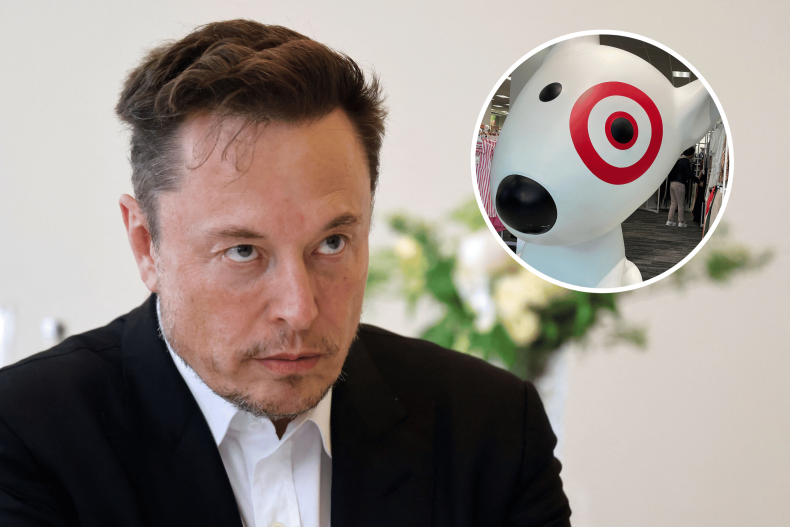Why The Call For Boycott Elon Musk Gains Momentum: A Comprehensive Analysis
Elon Musk, the billionaire entrepreneur behind Tesla, SpaceX, and Twitter, has become one of the most polarizing figures in the world today. While his innovations have revolutionized industries, his controversial actions and statements have sparked a growing movement advocating for a boycott of Elon Musk and his companies. This article dives deep into the reasons behind the boycott, the impact it could have, and what it means for Musk's global influence.
As Musk continues to dominate headlines, both for his visionary leadership and his controversial antics, the debate over whether to support or boycott him grows louder. The call to boycott Elon Musk is not just about one individual but about the broader implications of his business practices, political stances, and personal conduct. In this article, we will explore the reasons behind this movement and its potential consequences.
This piece aims to provide a balanced perspective on the issue, offering insights into Musk's actions, their repercussions, and the ethical dilemmas faced by consumers and investors alike. Whether you're a supporter or a critic, understanding the nuances of this debate is crucial in making informed decisions about your engagement with Musk's enterprises.
Read also:Discovering Woah Vicky The Social Media Sensation Taking Over The Internet
Table of Contents
- Elon Musk's Biography
- Reasons for Boycotting Elon Musk
- The Twitter Controversy
- Environmental Concerns
- Employee Treatment and Labor Issues
- Political Influence and Stances
- Ethical Dilemmas in Musk's Business Practices
- The Supporters' Perspective
- Economic Impact of a Boycott
- Conclusion and Call to Action
Elon Musk's Biography
Early Life and Career
Elon Reeve Musk was born on June 28, 1971, in Pretoria, South Africa. From a young age, Musk displayed a keen interest in technology and entrepreneurship. He moved to Canada at the age of 17 and later attended the University of Pennsylvania, where he earned degrees in physics and economics. Musk's early ventures includedZip2, a company that provided business directories and maps online, which he sold for $307 million in 1999.
Key Achievements
Elon Musk's career is marked by groundbreaking achievements in multiple industries:
- Tesla Inc.: Revolutionizing the automotive industry with electric vehicles.
- SpaceX: Advancing space exploration with reusable rockets.
- Neuralink: Developing brain-computer interface technology.
- The Boring Company: Focused on tunneling and infrastructure innovation.
Biodata
| Full Name | Elon Reeve Musk |
|---|---|
| Date of Birth | June 28, 1971 |
| Place of Birth | Pretoria, South Africa |
| Net Worth | Approximately $250 billion (as of 2023) |
| Education | University of Pennsylvania (B.S. in Physics and Economics) |
Reasons for Boycotting Elon Musk
The movement to boycott Elon Musk is driven by several factors, including concerns over his business practices, personal conduct, and the impact of his companies on society. Below are some of the key reasons behind the boycott:
- Controversial Tweets and Statements: Musk's unfiltered Twitter presence has led to numerous controversies, sparking outrage among various groups.
- Environmental Concerns: Critics argue that Musk's focus on electric vehicles and renewable energy is overshadowed by the environmental impact of his other ventures.
- Labor Issues: Tesla and SpaceX have faced allegations of poor working conditions and unfair treatment of employees.
The Twitter Controversy
Acquisition and Management
Elon Musk's acquisition of Twitter in 2022 was met with widespread criticism. Many users and activists expressed concerns over his management style and the platform's commitment to free speech. Musk's decision to lay off a significant portion of Twitter's workforce and implement controversial policy changes further fueled the boycott movement.
Impact on Free Speech
While Musk advocates for absolute free speech, critics argue that this approach can lead to the spread of misinformation and hate speech. The debate over how to balance free expression with responsible moderation remains at the heart of the Twitter controversy.
Environmental Concerns
Although Elon Musk is often praised for his contributions to renewable energy, his environmental record is not without flaws. Critics point to the significant carbon footprint of SpaceX's rocket launches and the mining of lithium for Tesla batteries as areas of concern. These issues raise questions about the sustainability of Musk's vision for the future.
Read also:Is Undress Ai Safe A Comprehensive Guide To Understanding Its Risks And Benefits
Employee Treatment and Labor Issues
Workplace Culture
Several reports have highlighted the demanding and sometimes toxic workplace culture at Tesla and SpaceX. Employees have described long hours, high-pressure environments, and inadequate compensation. These concerns have led some to question whether Musk prioritizes profits over people.
Unionization Efforts
Elon Musk has been vocal in his opposition to unionization, which has led to tensions with labor groups. Critics argue that Musk's stance undermines workers' rights and perpetuates inequality in the workplace.
Political Influence and Stances
Elon Musk's political influence and stances have also contributed to the call for a boycott. His interactions with world leaders, donations to political campaigns, and public statements on policy issues have sparked debates about the role of billionaire entrepreneurs in shaping global politics.
Ethical Dilemmas in Musk's Business Practices
The ethical implications of Musk's business practices cannot be ignored. From data privacy concerns on Twitter to the potential militarization of SpaceX technology, there are numerous ethical dilemmas that need to be addressed. Consumers and investors must weigh these concerns when deciding whether to support Musk's companies.
The Supporters' Perspective
Despite the criticisms, Elon Musk has a large and loyal fanbase. Supporters argue that his innovations have the potential to change the world for the better. They point to Tesla's role in accelerating the transition to renewable energy and SpaceX's contributions to space exploration as examples of Musk's positive impact.
Economic Impact of a Boycott
A successful boycott of Elon Musk's companies could have significant economic implications. It could lead to a decline in stock prices, reduced consumer demand, and financial losses for investors. However, the effectiveness of such a boycott depends on the level of participation and the ability to sustain momentum over time.
Conclusion and Call to Action
In conclusion, the call to boycott Elon Musk is driven by legitimate concerns over his business practices, personal conduct, and the impact of his companies on society. While Musk's innovations have the potential to drive positive change, it is essential to critically evaluate their ethical and environmental implications. As consumers and investors, we have the power to influence corporate behavior through our choices.
We invite you to join the conversation by leaving your thoughts in the comments section below. Share this article with your network to raise awareness about the issues surrounding Elon Musk and his companies. Together, we can foster a more informed and responsible approach to supporting the businesses and leaders shaping our world.

